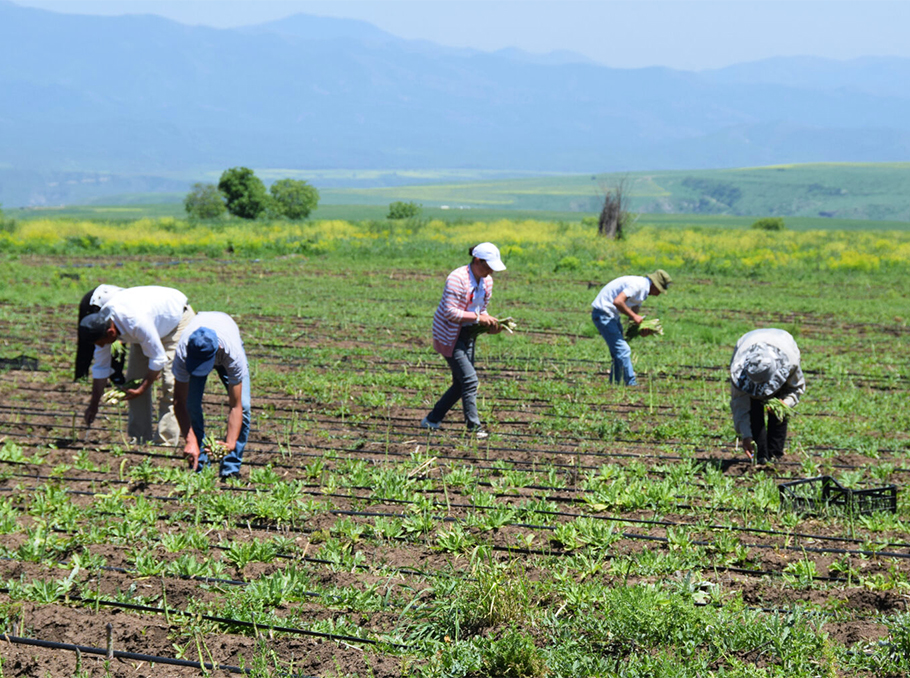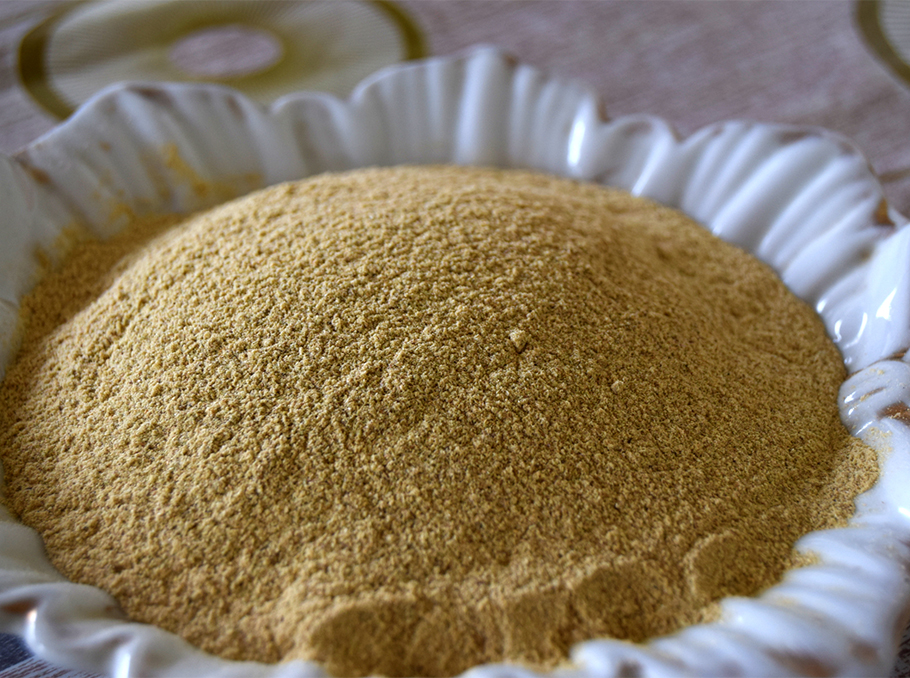The organic asparagus grown in the Tegh community, bordering Syunik region, is already well-known both in local and international markets. "Davtyan Farms" exports 80 percent of its asparagus.
Initially cultivated on a 1,000 square meter area, asparagus production at Davtyan Farms has expanded to 5 hectares over the years. This growth has been supported by the "Organic Agriculture Support Initiative" (OASI), implemented by the Austrian Development Agency (ADA) from 2015 to 2018, and the "Green Agriculture Initiative in Armenia" (EU-GAIA), launched in 2019. Both projects are financed by the European Union and the Austrian Development Cooperation (ADC).
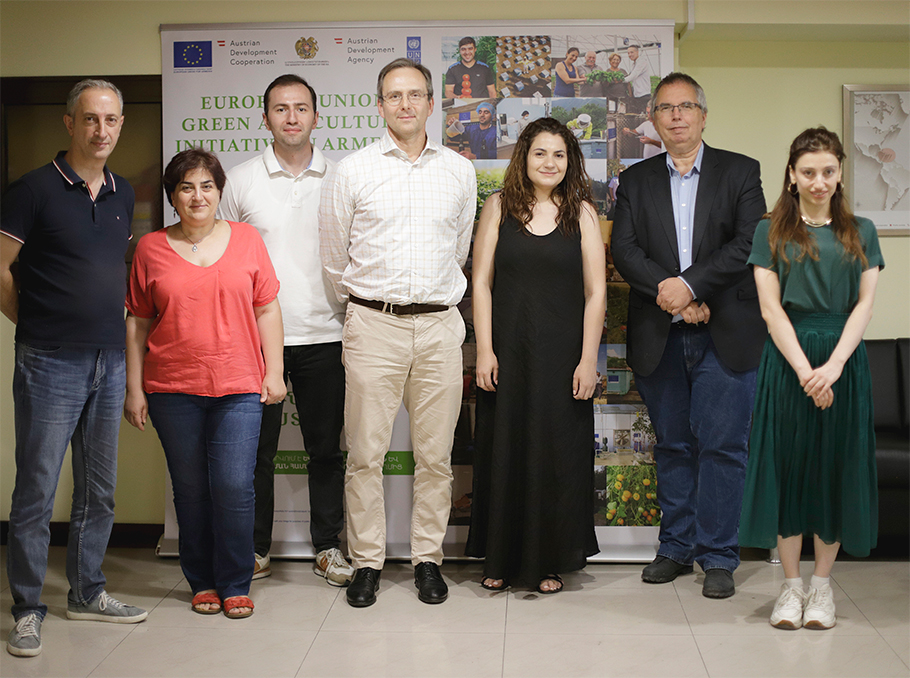
Photo: Mediamax
Currently, the EU-GAIA project is also being conducted in the Syunik region in close cooperation with the "R2D Syunik: Recovery, Resilience, Development for Syunik" project. Both projects are implemented under the umbrella of Resilient Syunik Team Europe Initiative, which is a collaborative effort involving the European Union, the European Investment Bank, EU member states including Austria, Czech Republic, Estonia, Finland, France, Germany, Lithuania, the Netherlands, Poland, Sweden, and Switzerland, as an external partner.
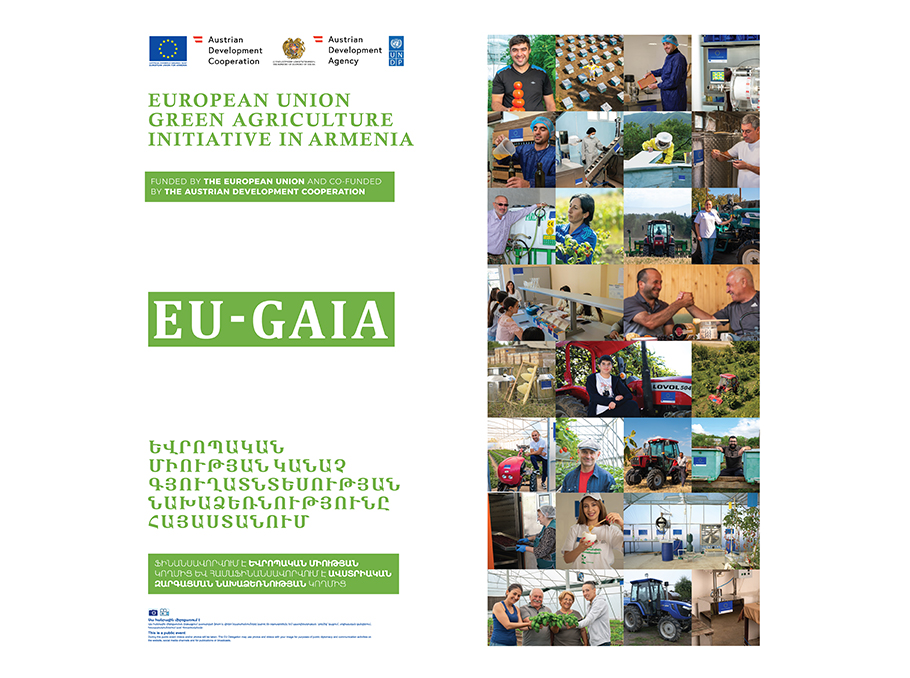
Mediamax spoke with representatives of the Austrian Development Agency and Samvel Davtyan, founder of EU-GAIA beneficiary "Davtyan Farms," about the efforts and results aimed at developing green agriculture in Armenia.
Local Village Organic Asparagus
"Davtyan Farms," established by the Davtyan family, has been producing fruit and decorative seedlings in Tegh village of Syunik marz since 2001. In 2010, they began cultivating asparagus on a pilot basis to address issues related to plant care, cultivation, production, and sales.
According to Samvel Davtyan, director of the company, "Entering the market was very difficult, but thanks to the support of the European Union and the Austrian Development Agency, everything was overcome."
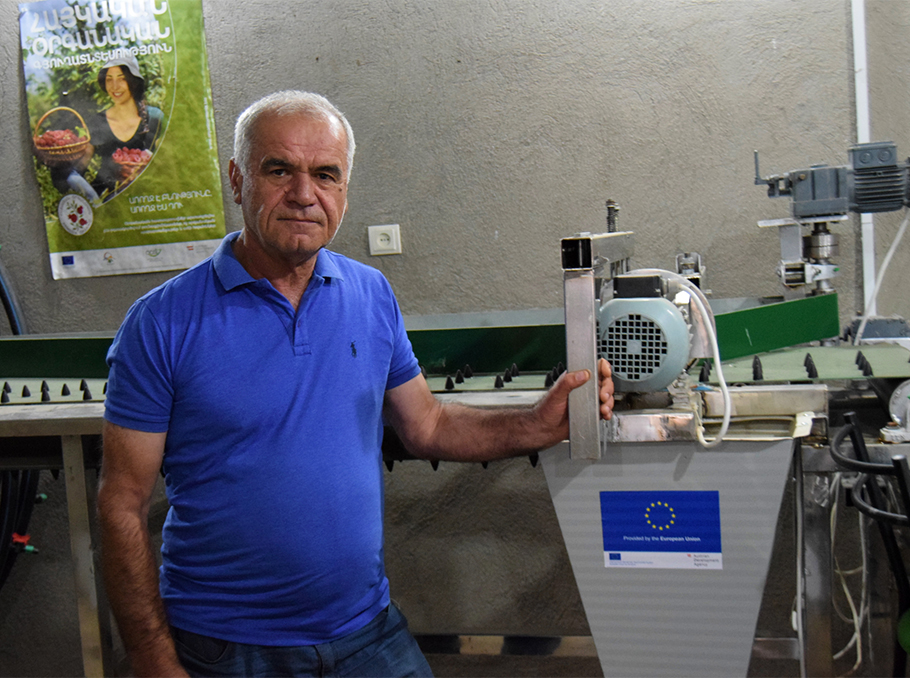 Samvel Davtyan
Samvel Davtyan Photo: Mediamax
From the beginning, Davtyan Farms benefited from the OASI project of the Austrian Development Agency, which facilitated their transition to certified organic agriculture. To further promote business growth and social impact, in 2018, Davtyan Farms became a beneficiary of the EU-GAIA project, which supported the development of their organic nursery. The project provided a moto-block, a tractor, a sprayer, a tiller, organic pesticides and fertilizers, and other tools to enhance asparagus production. This innovative approach increased production from 5-6 tons to 18 tons over the years.
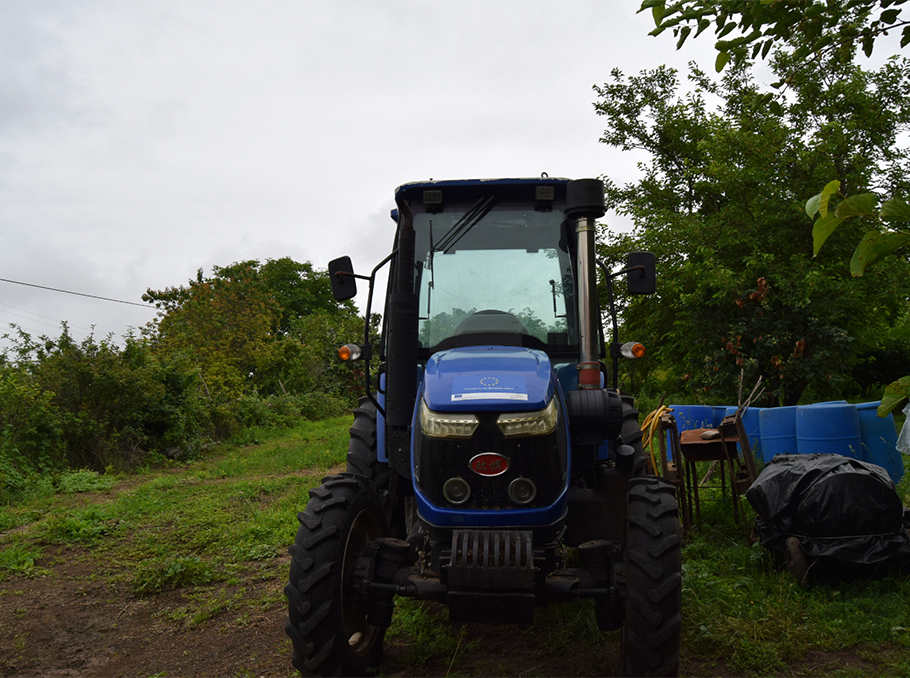
Photo: Mediamax
"Although we still cannot compete with the amount of our production, we are certainly competitive as a high-value crop and an organic product. Today, the demand for our asparagus is high in abroad because our asparagus is organic," says Samvel Davtyan.
They are just entering the German market: the first small batch has already been sent, and preparations are now being made to freeze large quantities of asparagus to become a regular supplier in the German market.
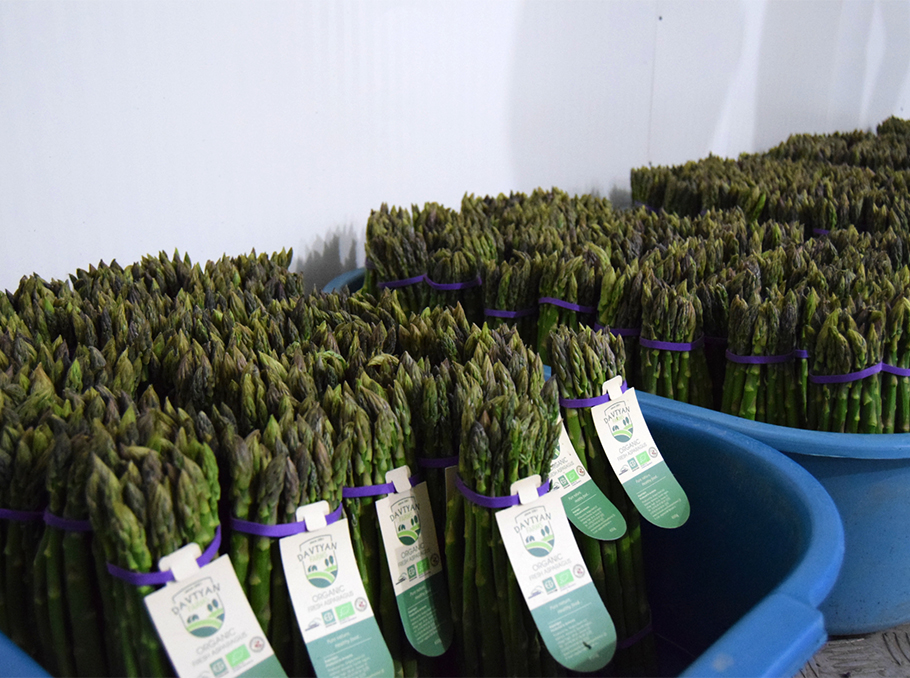
Photo: Mediamax
"The support of the European Union is very important for entering the markets of Germany and other European countries. Thanks to exhibitions organized in various countries, our products have received approval from diverse companies abroad, with many of which we have managed to establish partnerships," says the company's director.
Establishment of Organic Agriculture in Armenia
EU-GAIA is the largest agricultural project implemented in Armenia, aimed at developing green, sustainable, and innovative agriculture. It naturally follows the OASI project but in a more expanded format.
The Austrian Development Agency has been operating in Armenia since 2011. According to Klaus Kapper, Head of the Yerevan office of ADC, numerous successful projects have been implemented in various Armenian regions over the years.
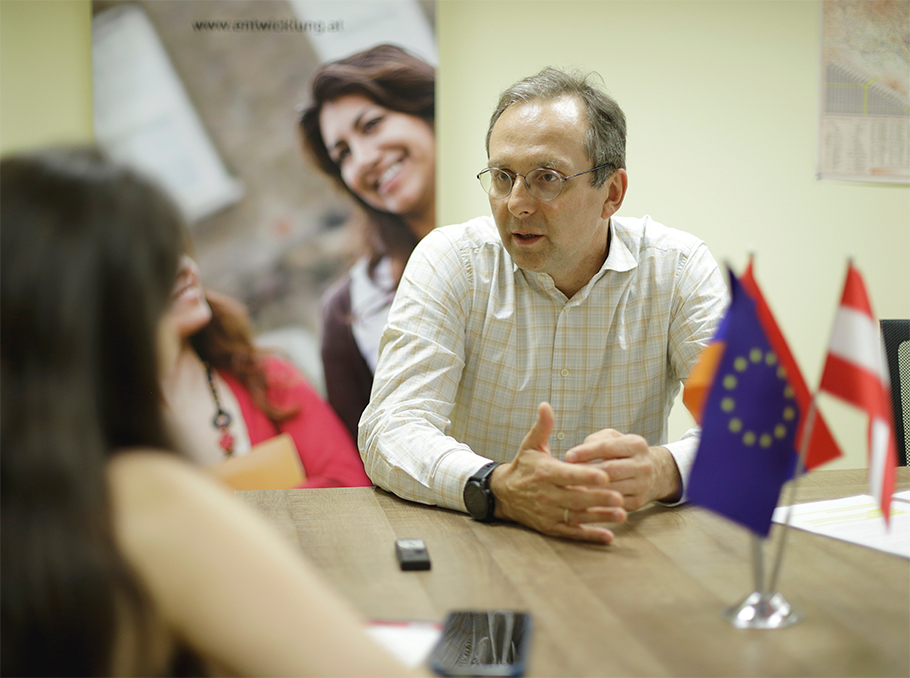 Klaus Kapper
Klaus Kapper Photo: Mediamax
"One of the success stories of our activities was the investment in and introduction of sustainable and organic agriculture in Armenia. Now, in partnership with the European Union, we focus on promoting green agriculture in the Syunik region and developing the agricultural knowledge of individual farmers," he states.
Klaus Kapper adds that ADC aims to take a lead on coordination of actors working in the agriculture sector in Syunik under its flagship R2D Syunik initiative.
The EU-GAIA project has supported more than 200 beneficiaries across Armenia, with 17 beneficiaries in the Syunik region alone.
Provision of Equipment and Awareness
According to Pascal Bokkers, Head of the EU-GAIA project team, the initiative works in several directions to develop green and organic agriculture.
"On the one hand, we support individual farmers in horticulture and animal husbandry. Under EU-GAIA, we provide support equivalent to 10,000 EUR for green agriculture in Lori, Tavush, and Shirak, and 15,000 EUR for organic agriculture support throughout Armenia, providing necessary equipment for the development of green agriculture. We also assist in branding, and participation in relevant international expos," he explains.
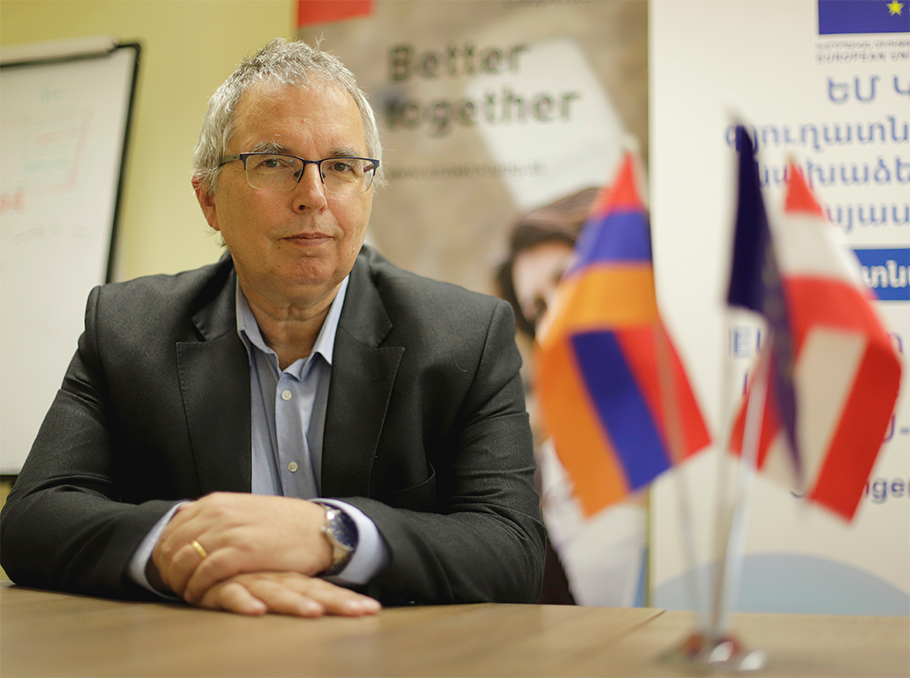 Pascal Bokkers
Pascal Bokkers Photo: Mediamax
Pascal Bokkers adds that beneficiaries of the project have been able to increase their business income by 30-40 percent on average.
The project also works with educational institutions and cooperates with the Ministry of Economy of the Republic of Armenia to develop sectoral legislative regulations.
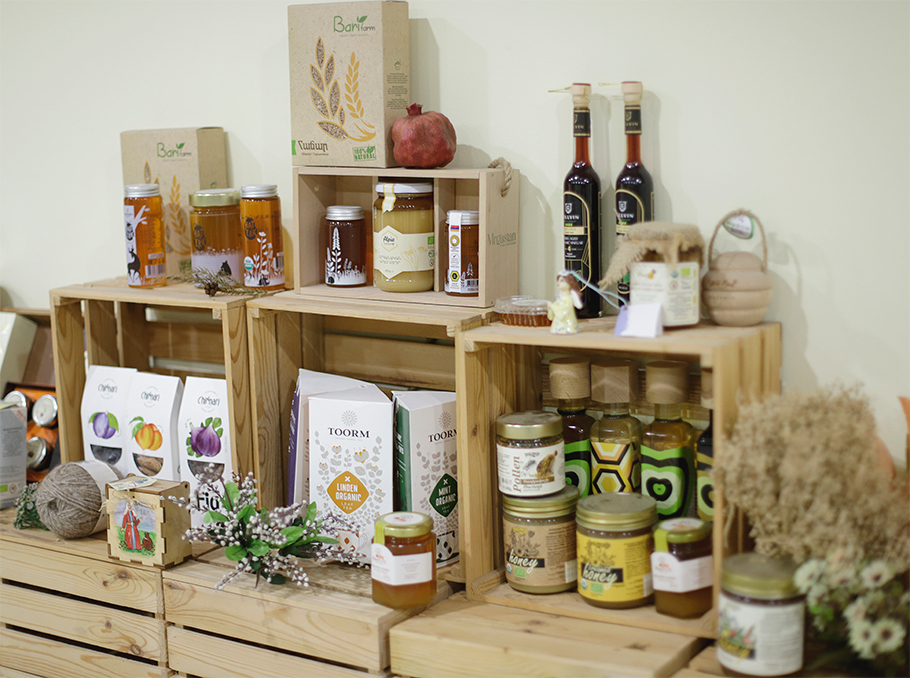
Photo: Mediamax
Public awareness is also a key focus. The project has conducted campaigns to educate the public about organic produce and sustainable agriculture.
"I think raising awareness among society is one of our achievements. Thanks to our actions in various regions, people now understand that it's important not only to ask if food is tasty but also how it was produced," emphasizes Pascal Bokkers.
From Greener to Certified Organic
Hasmik Altunyan, Head of Grant Programs at ADA/EU-GAIA, notes that the OASI support project highlighted the need to promote the supply of organic raw materials.
"Organic agricultural producers struggled to find organic seedlings and seeds. With EU-GAIA, we invested in companies that will supply organic raw materials. Davtyan Farms is among these beneficiaries," she elaborates.
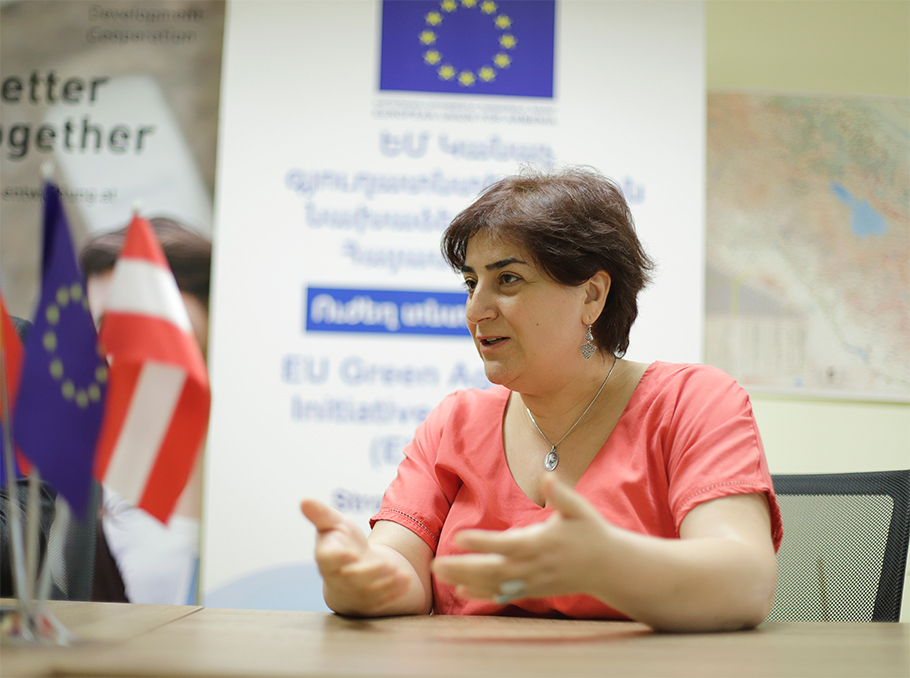 Hasmik Altunyan
Hasmik Altunyan Photo: Mediamax
EU-GAIA also supports farms not yet ready for organic certification but aiming to improve their practices by using less water and electricity and minimizing additives.
"It is an achievement that our beneficiaries are adopting greener practices. We hope the demand for organic food in Armenia will rise, leading to more farmers seeking organic certification," adds Hasmik Altunyan.
Although organic products from "Davtyan Farms" have higher prices, they are in great demand locally and abroad. This demand is driving efforts to expand asparagus planting areas to the Ararat Valley and Aragyugh in the Nairi community.
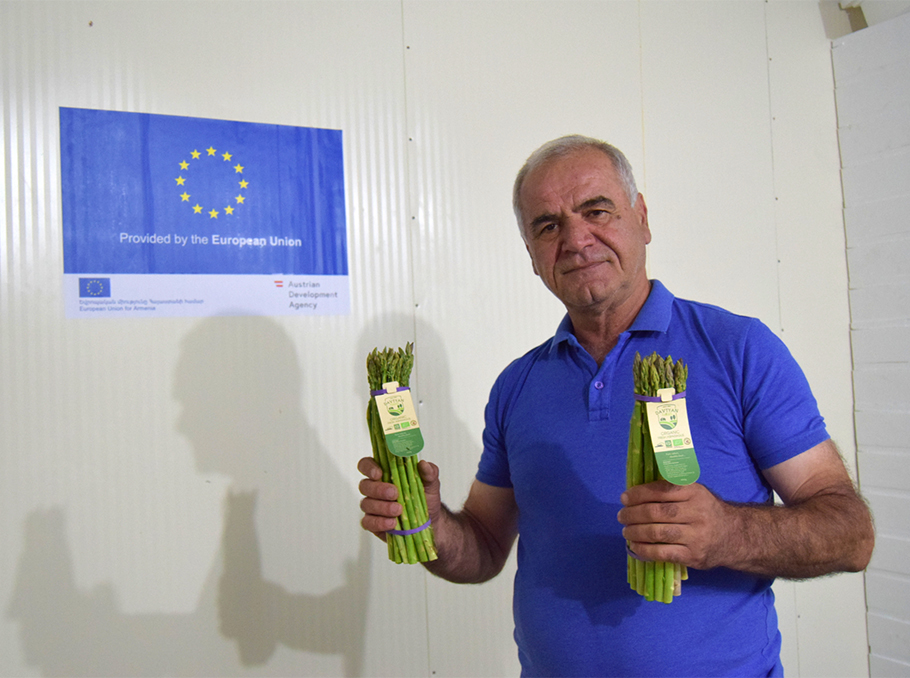 Samvel Davtyan
Samvel Davtyan Photo: Mediamax
"In the local village, we harvest asparagus from May to July-August, and in the Ararat Valley from March to May. This will allow us to offer fresh products for six months and frozen asparagus year-round," says Samvel Davtyan.
Establishment of Business Contacts
Hasmik Altunyan highlights that one of the significant benefits of such projects is the establishment of business connections and networks.
"EU-GAIA has created many opportunities for beneficiaries to build business contacts. Many realize that they are not competitors but partners, which strengthens their position in terms of production and sales. Cooperating enables them to build a reputation for Armenia as a producer of high-quality products," she explains.
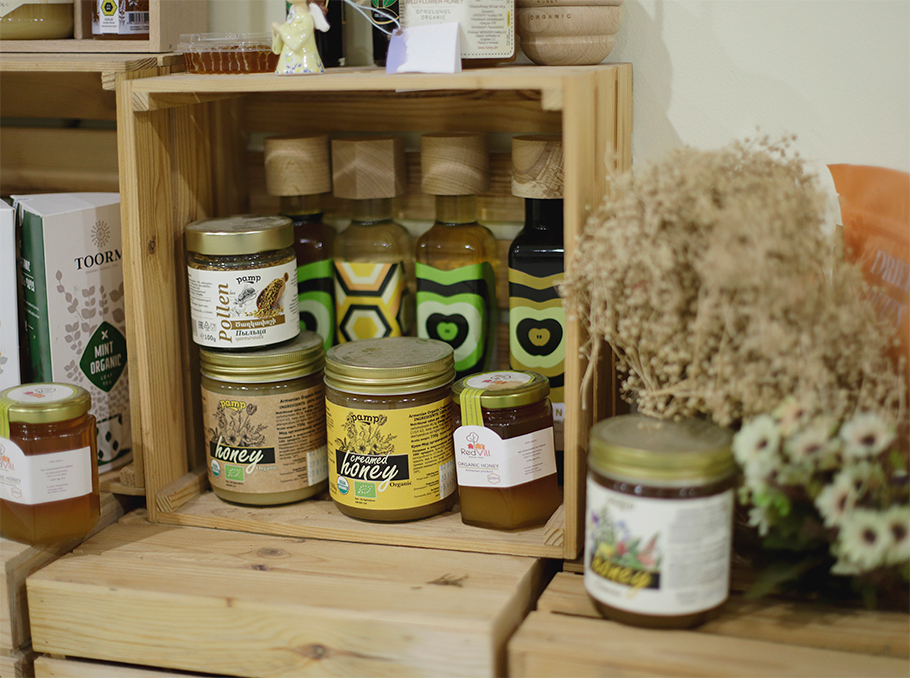
Photo: Mediamax
With support from the EU and ADA, the Davtyan family has participated in international expos in United Arab Emirates, United Kingdom, Austria, and Germany, and engaged in exchange study visits.
Social Impact on the Community
The impact of "Davtyan Farms" on community development is significant. What started with three employees now supports 25 workers, 20 of whom are from the local border town, including women.
In addition to their own business development, the Davtyan family shares their experience with other farms and villagers. In 2020, they provided asparagus seedlings to 30 families from various villages in the region and supported their production efforts.
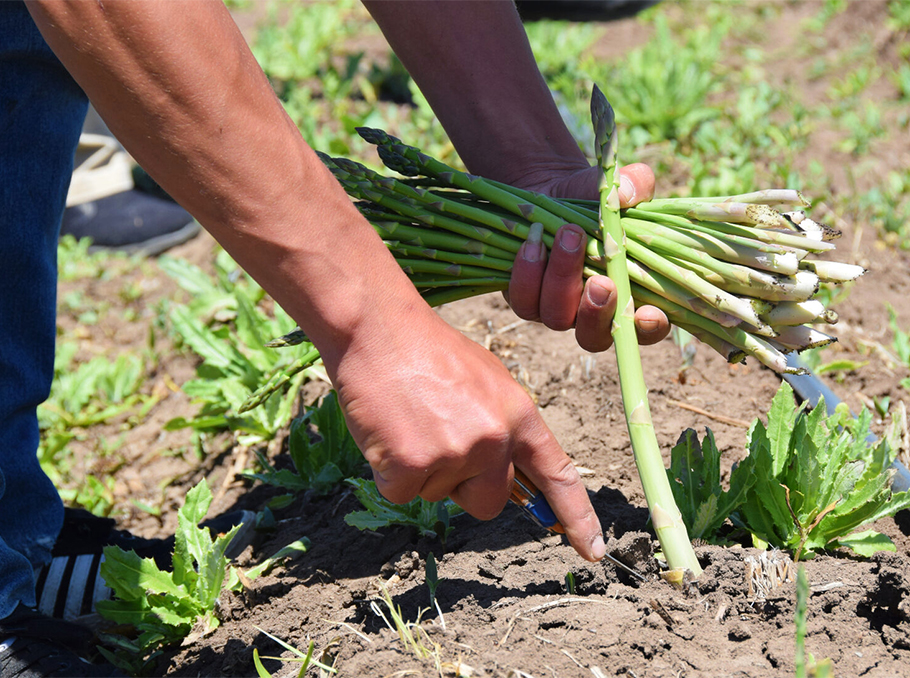
Photo: Mediamax
Students from the Sisian branch of the National Agrarian University of Armenia, Goris Agricultural College, and the university's biology department regularly receive training at the company.
Support to Nagorno-Karabakh Armenians Interested in Agriculture
Klaus Kapper, Head of the Yerevan office of the Austrian Development Agency, mentions their flexibility in adapting programs to current needs.
"Following the displacement from Nagorno-Karabakh, we adjusted EU-GAIA project direction to support displaced individuals interested in agriculture," he says.
Within the EU-GAIA project, ADA has received over 300 applications for the agribusiness support program for integrating displaced persons from Nagorno-Karabakh. Applications are now in the process of evaluation.
"We are seeking families in challenging social conditions who wish to stay in Armenia and meet their family's needs, with the potential for additional income," says Hasmik Altunyan.
What projects is EU-GAIA Looking For?
Hasmik Altunyan explains that applications are evaluated based on their alignment with the initiative's goals.
"We prioritize business stability and assess whether our support will complement the farmer's investment, lead to growth, and whether the farmer is willing to learn, apply new technologies, and share their experience with others," she notes.
Pascal Bokkers adds that influencing the business community, including the involvement of women and vulnerable groups, is also a priority.
"We follow the principle of 'planet, people, and profit,' recognizing that without profitability, business stability is unattainable. Connecting organic businesses to the market is essential," he concludes.
This article was published with the financial support of the European Union. Its content is the sole responsibility of Mediamax and does not necessarily reflect the views of the European Union and Austrian Development Agency.
Anahit Baghdasaryan, Gaiane Yenokian









